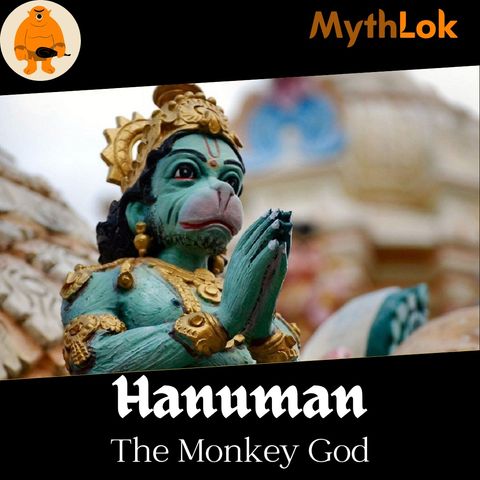Hanuman : The Monkey God

Sign up for free
Listen to this episode and many more. Enjoy the best podcasts on Spreaker!
Download and listen anywhere
Download your favorite episodes and enjoy them, wherever you are! Sign up or log in now to access offline listening.
Description
Hanuman is a Hindu god and the companion of the god Rama. Hanuman is often referred to as the son of Vayu, the wind god. One account states that when...
show moreHanuman is usually depicted as a muscular and exceptionally well built humanoid monkey. He has a distinct apelike face but with other physical features of that of a man excluding a powerful tail.
Hanuman was born on the mountain Anjaneri. His mother Anjana was an apsara who was born on earth after suffering a curse. She was redeemed by giving birth to a son. The Ramayana states that his father, Kesari, was the king of a place called Sumeru. For 12 long years, Anjana and Kesari prayed for a son to Lord Shiva and was eventually blessed with a son.
He is also the son of Vayu, who in various stories played a crucial role in his birth. Another tradition says that Anjana and her husband Kesari prayed to Shiva for a child. By Shiva’s direction, Vayu transferred his male energy to Anjana’s womb. Accordingly, Hanuman is identified as the son of the Vayu.
The origin of the word Hanuman is unclear. One interpretation is that it refers to a character with a mutilated jaw. This supports a Puranic legend where Hanuman, as an infant, mistakes the Sun for a fruit and makes a leap towards it. He is wounded in the jaw when he is thrown back to earth by the sun God.
Hanumat, Anuman, Hanumantha, and Hanumanthudu are some of the names that have linguistic variations of “Hanuman”. These names are often used in rural India. Anjaniyar, Anjaneyar, and Anjaneya are also used in Southern India to indicate that he is the son of Anjana.
Vayuputra/ Pavanputra – the son of the Vayu deva, Vajrang Bali/Bajrang Bali – “the strong one (bali), who had limbs (anga) as hard or as tough as vajra (diamond)”, Sankata Mochana – “the remover of dangers, hardships, or hurdles”, Maruti – “son of Maruta” (another name of Vayu deva), Kapeeshwara – “Lord of monkeys”, Rama Doota – “the messenger of Lord Rama”, Mahakaya – “gigantic”, Vira/Mahavira – “most valiant”, Mahabala/Mahabali – “the strongest one” are some other common names we hear from other parts of India.
Hanuman is blessed with numerous gifts, powers and abilities but is also cursed with the fact that he is never aware of his powers. Some his abilities include being immortal, being a bramhachari who can control all kinds of temptations, being a shapeshifter, extraordinary strength, knowledge of Vedas and a healer of diseases.
Hanuman as a deity has influence over Hinduism, Buddhism, Jainism, Sikhism and other traditional religions of South East Asia. He is seen in drawing and historical representations of various Asian cultures like Thailand, Indonesia, Sri Lanka and Cambodia.
He is also a common fixture of Ramlila celebrations and also has temples dedicated to him all over India.
Read about Hanuman at https://mythlok.com/hanuman/
Information
| Author | NITTEN NAIR |
| Organization | NITTEN NAIR |
| Website | - |
| Tags |
Copyright 2024 - Spreaker Inc. an iHeartMedia Company
